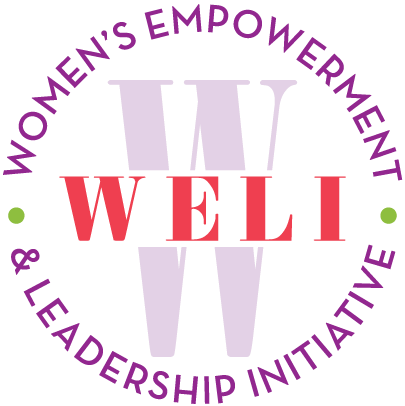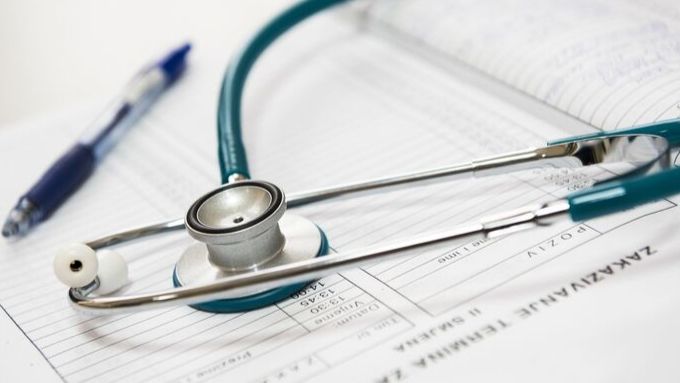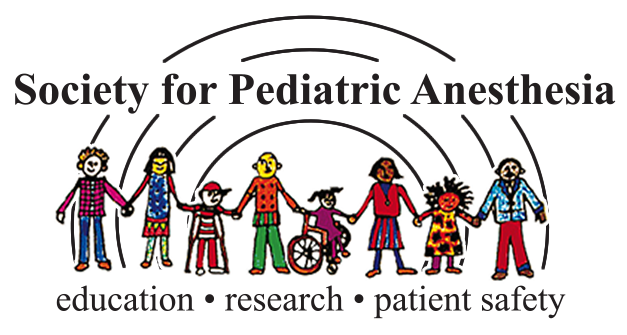Mental Health Resources for COVID 19
Collated by Uma Anand, PhD, LP (Mayo Clinic), Rebecca Margolis, DO (Children’s Hospital Los Angeles) and Rachel Schwartz, PhD (Stanford School of Medicine)
Mental Health Resources for COVID 19
Crisis Support
Crisis Text Support
Free access 24/7
Not specific for healthcare workers
Crisis Text Support
National Helpline
24/7 treatment referral and information service for mental health and substance abuse issues
Virtual Mental Health Support
Talkspace
Offering free virtual therapy for frontline medical workers nationwide
Two Chairs
No specific COVID mental health benefits for healthcare providers, however good resources for high-quality, virtual therapy
Usually partially reimbursed by PPO providers
Can use FSA
Regional Mental Health Support
New York
NYC-Specific Mental Health Support for Healthcare Workers & Essential Workers
The NYC COVID Care Network is a self-organizing mutual aid network of more than 2500 mental health workers, spiritual care providers, and community builders supporting all essential workers and their families during this evolving crisis. They facilitate free individual support encounters, support groups, stress-reduction training, and grief rituals via Zoom or telephone. Any New York essential worker and their family is eligible to receive support.
NYC Statewide Hotline
[1-844-863-9314] to provide free mental health services to individuals sheltering at home who may be experiencing stress and anxiety as a result of COVID-19. Staffed by 6000 volunteer mental health professionals.
Mindfulness/Meditation Resources for Emotional Regulation
Ten Percent Happier (medium/high yield)
Meditation, stress management with a free 6-month trial of their app for all healthcare workers.
Headspace (high yield)
Mindfulness app with helpful section for sleep related issues
Free membership with an NPI number
Dr. Sood’s Resiliency website (Medium Yield)
Short helpful meditations
CDC Guidelines for Mental Health and Coping during COVID-19 (high yield)
Comprehensive list of factors to take into consideration during COVID-19 related to coping and stress
https://www.cdc.gov/coronavirus/2019-ncov/about/coping.html
https://www.cdc.gov/violenceprevention/suicide/copingwith-stresstips.html
https://emergency.cdc.gov/coping/selfcare.asp
ACGME Specific
ACGME AWARE Resources (not COVID specific, high yield)
Well-Being App: targeted for physicians to identity sources of stress and use Cognitive Behavioral Therapy (CBT) practices to undo these routines and improve well-being
Podcast workshop series: for DIOs and PDs that provides a frame-work for addressing well-being with trainees
Dr. Stuart Slavin’s AWARE podcasts (high yield)
Stuart Slavin, MD, ACGME’s Senior Scholar for Well-being, who provides a synthesis and distillation of well-being strategies for residents and other clinicians specific to the COVID-19 pandemic. Dr Slavin has pulled from resources including psychology and psychiatry, peer support programming, the military and VA system, and literature for support of first responders to mass casualty events.
Resource Libraries
Center for the Study of Traumatic Stress Resource Library (high yield)
https://www.cstsonline.org/resources/resource-master-list/coronavirus-and-emerging-infectious-disease-outbreaks-response
Visual Resources for your Work Environment
Intensive Care Society Resource Library (high yield)
Provides a well-being resource pack, including a series of posters that can be displayed in your institution (COVID specific staff well-being posters at end of this document)
Links to other resources such as Second Victim, improving workplace civility
Non-Scholarly Articles about managing stress during COVID-19 (all medium yield)
Psychology Today
7 steps for taking control of your fear over Coronavirus
Work Human
9 steps for managing COVID related stress
AMA
Tips for caring for yourself and your staff during this outbreak
For ‘individual mental health support’ resources and ‘clinician toolkits’
Center for the study of Traumatic Stress (medium yield)
Describes the psychological effects of quarantine, as well as strategies for how healthcare providers can care for their patients’ and their own mental well-being during periods of quarantine
The Science of Wellbeing (high yield)
Yale University course that you will engage in a series of challenges designed to increase your own happiness and build more productive habits, being offered for free during outbreak
American Psychological Association COVID 19 resources (high yield)
Consolidated and exhaustive resource for dealing with pandemics
National Academy of Medicine (high yield)
Exhaustive list of resources for clinician wellbeing
Tips on how to be empathic and kind (Medium Yield )
For Clinician Wellbeing/Strengthening
Webinars
HealthCare Heroes Podcast (high yield)
This is very well presented and talks of post traumatic growth, acceptance, self-compassion, realistic optimism, and other relevant resiliency related concepts. Interestingly, they describe resiliency as related to emotional intelligence.
Dr. Jo Shapiro’s podcast (High Yield)
An ENT’s personal COVID-19 experiencing and managing personal wellness
Webinar from American Psychiatric Association (medium yield)
This deals with how psychiatrists can support patients, communicate with family members and children, and be a resource to other providers during the COVID-19 outbreak
Relevant Links/Pages related to Self-Compassion
Dr. Kristin Neff’s 10 Self Compassion Practice insights
Online Stress Reduction and Meditation Programs
Art of Living Happiness Course (high/medium yield)
This is a world-wide program that has been shown to have empirical evidence for reducing mood disturbances, enhanced sleep, etc.
Inner Engineering (high-yield)
World-wide program FREE to health care professions right now designed to improve physical health, enhance mental stability, and promote spiritual well-being. Derived from the science of yoga, the program can establish and strengthen the inner foundation necessary to support your professional efforts and provide balance in your personal life during these challenging times
Balint-related (high yield)
A Balint group is a group of clinicians who meet regularly to present clinical cases in order to improve and to better understand the clinician-patient relationship. It focuses on enhancing the clinician’s ability to connect with and care for the patient sustainably.
Nease et al. (2018)
https://journals.sagepub.com/doi/abs/10.1177/0091217418765036
Article describes effective use of virtual Balint groups
Schwartz et al (2020)
https://bmchealthservres.biomedcentral.com/articles/10.1186/s12913-019-4783-9
The prevalence and detrimental effect of physician burnout requires new strategies for supporting physicians. In this project, we describe the development, and assessment, of a “Balint-like” physician support group that provided social cohesion and delivered novel didactic curricula for building resilience.
Scholarly Articles
Research Papers (please see Box for PDFs)
Kang et al. (2020)
https://www.sciencedirect.com/science/article/pii/S0889159120303482
-First paper on the mental health of medical and nursing staff in Wuhan
-Among 994 medical and nursing staff working in Wuhan, 36.9% had subthreshold mental health disturbances (mean PHQ-9: 2.4), 34.4% had mild disturbances (mean PHQ-9: 5.4), 22.4% had moderate disturbances (mean PHQ-9: 9.0), and 6.2% had severe disturbance (mean PHQ-9: 15.1) in the immediate wake of the viral epidemic. The noted burden fell particularly heavily on young women. Of all participants, 36.3% had accessed psychological materials (such as books on mental health), 50.4% had accessed psychological resources available through media (such as online push messages on mental health self-help coping methods), and 17.5% had participated in counseling or psychotherapy.
-Trends in levels of psychological distress and factors such as exposure to infected people and psychological assistance were identified. Although staff accessed limited mental healthcare services, distressed staff nonetheless saw these services as important resources to alleviate acute mental health disturbances and improve their physical health perceptions)
Lai et al. (2020)
https://jamanetwork.com/journals/jamanetworkopen/article-abstract/2763229
-n = 1257; about 60% nurses, 40% physicians
-A considerable proportion of participants reported symptoms of depression (634 [50.4%]), anxiety (560 [44.6%]), insomnia (427 [34.0%]), and distress (899 [71.5%]).
-Frontline health care workers engaged in direct diagnosis, treatment, and care of patients with COVID-19 were associated with a higher risk of symptoms of depression (OR, 1.52; 95%CI, 1.11-2.09; P = .01), anxiety (OR, 1.57; 95%CI, 1.22-2.02; P < .001), insomnia”)
Li et al. (2020)
https://www.ncbi.nlm.nih.gov/pmc/articles/PMC7098037/
-The National Health Commission of China has summoned a call for emergency psychological crisis intervention and thus, various mental health associations and organizations have established expert teams to compile guidelines and public health educational articles/videos for mental health professionals and the general public alongside with online mental health services. In addition, mental health professionals and expert groups are stationed in designated isolation hospitals to provide on-site services
Liu et al. (2020)
https://www.sciencedirect.com/science/article/pii/S016517812030545X
–Prevalence of PTSS in China hardest-hit areas a month after the COVID-19 outbreak was 7%.
-Women reported significant higher PTSS in the domains of re-experiencing, negative alterations in cognition or mood, and hyper-arousal. Participants with better sleep quality or less frequency of early awakenings reported lower PTSS.
-Professional and effective mental health services should be designed in order to aid the psychological wellbeing of the population in affected areas, especially those living in hardest-hit areas, females and people with poor sleep quality
Brooks et al. (2020)
https://www.sciencedirect.com/science/article/pii/S0140673620304608
Psychological impact of quarantine and how to reduce it
Letters to the Editor
Banerjee
http://niioz.ru/upload/medialibrary/cc2/cc28ac939f7946a6ba864f1355e36c6f.pdf
Provides framework for addressing anxiety through psychiatrist-led education initiatives
-Educating about common adverse psychological consequences; encouraging health-promoting behaviors; integrating available health care; facilitate problem solving; empowerment of patients, families and healthcare providers; Self-care of the health-care providers
Chen et al.
https://www.thelancet.com/journals/lanpsy/article/PIIS2215-0366(20)30078-X/fulltext
-First, the hospital provided a place for rest where staff could temporarily isolate themselves from their family. The hospital also guaranteed food and daily living supplies, and helped staff to video record their routines in the hospital to share with their families and alleviate family members’ concerns.
-Second, in addition to disease knowledge and protective measures, pre-job training was arranged to address identification of and responses to psychological problems in patients with COVID-19, and hospital security staff were available to be sent to help deal with uncooperative patients.
-Third, the hospital developed detailed rules on the use and management of protective equipment to reduce worry.
-Fourth, leisure activities and training on how to relax were properly arranged to help staff reduce stress.
-Finally, psychological counsellors regularly visited the rest area to listen to difficulties or stories encountered by staff at work, and provide support accordingly. More than 100 frontline medical staff can rest in the provided rest place, and most of them report feeling at home in this accommodation.
Liang et al.
https://www.ncbi.nlm.nih.gov/pmc/articles/PMC7139244/
-Screening for Chinese mental health by SDS and SAS (found several staff experiencing significant depressive symptoms; no significant differences in scores between staff in COVID units vs. other depts. –Interventions included daily living supplies, pre-job training, leisure activities, psychological counseling, and provision of self-monitoring mental health tools.



 Supported By The Society for Pediatric Anesthesia
Supported By The Society for Pediatric Anesthesia